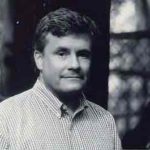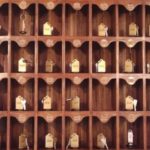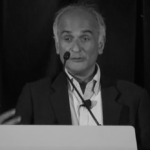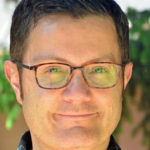Tahir Shah is the author of ten books, chronicling a wide range of unusual and outlandish journeys. He also makes documentaries, writes screenplays, works as a journalist and photographer. His most recent book is The Caliph’s House: A Year in Casablanca. He is also the author of In Search of King Solomon’s Mines
which takes the reader through Ethiopia on the quest of the source of Solomon’s Fabulous wealth. Shah’s books and feature articles have appeared in many languages, all over the world. He lives in Casablanca with his wife and two children.
How did you get started traveling?
I was born in London, but my earliest memories are of the labyrinth of twisting streets that make up the Medina of Fès, the city at Morocco’s medieval heart. When I was a child at English prep school, I remember staring out of the window at the football pitches. But I didn’t see the newly mown grass. I saw instead the Saharan sands. At that young age, I already knew there was a world out there, a world of reality waiting to be explored.
Then, in my late teens, encouraged by my parents, I started to travel alone. First, I went to America and learned to fly. Then I journeyed to central Africa, and in a single moment I realized how the next twenty years would be spent: moving.
How did you get started writing?
At the beginning I was like a caveman. I had no vision, no skill. I would save up some money through a dead-end job, and then blow it on a trip through the Amazon, India, or the Far East. As soon as the cash had gone, I’d run back home and start all over again.
With time, I saw that if I could write an article for a magazine –- however bad it was –- it would give me an income from travel. But it taught me a far more important lesson, and that was to concentrate on specific aspects of the lands through which I traveled. By that I mean I would focus on an issue, a cause, and really get to grips with it. Through that lens I learned first-hand about a society in a way that those who are traveling for the sake of travel grasp.
What do you consider your first “break” as a writer?
Before I ever wrote a magazine article, I wrote a book. It was cobbled together of miscellaneous journeys I’d made in India, Africa and Latin America. It was originally entitled In Gondwanaland, and it sat on a shelf for four years. No publishers were interested when I sent the manuscript out directly. I tried to get an agent, but again, no one would take me on. So I got some letterhead printed and posed as my own agent. I’d call up publishers, put on funny voices, and rave about Tahir Shah’s debut book. Amazingly, I managed to create hype and, eventually, it was bought by a big publishing company. They published it under the title Beyond the Devil’s Teeth. It’s not the greatest book ever written, but it was a start. I found that having that first book out there with my name on the spine gave me confidence, and began very slowly to open doors.
As a traveler and fact/story gatherer, what is your biggest challenge on the road?
I always travel to places that interest me. I’m actually writing this in Mumbai, and am staring out at a group of people who live under a flyover in the middle of the city, across from a bookshop with comfortable armchairs. I could sit here all day and watch the life on that slim margin of street. I’m mesmerized by it. What I’m saying is that as I’m so interested in the destinations I choose, the only danger is getting too distracted on something unrelated to my current project. I’m not very organized, but I like to spend time really observing a culture, and allowing it to seep into my bones. Sometimes I take detailed notes. At other times I don’t even carry a notebook. You miss a lot of stuff if you’re scribbling it all down. It’s often better to relax, to open your eyes, and watch.
What is your biggest challenge in the research and writing process?
Self discipline. It’s the only challenge. Keeping the seat of your pants glued to that damn chair. That’s the only challenge I know. When I am writing a book I have a clear method. I don’t deviate. I start only when I am ready to begin. I plan the book out roughly, get all the source material to hand, get a comfortable chair, a cushion, and write for four hours each day. No breaks. No excuses. If I write five hundred words an hour, that’s two thousand a day. It means I can knock out a book of 100,000 words in fifty days. At that pace there’s no bursting a gut over it. I don’t have any time for people who groan about how hard it is to write. To me, it means they’re lazy, that they are lacking the key ingredient for any self-employed person: self discipline.
What is your biggest challenge from a business standpoint?
Easy answer: Marketing. You cannot rely on a publisher to do anything for you. Sure, they’ll promise you the world. They will ooze with enthusiasm whenever your book is mentioned, but they won’t do a damn thing. Most publishers are utterly incompetent at marketing books. They don’t have a clue. I find it remarkable that as a business they could have such little knowledge of how to sell their product. They’ll lavish marketing budgets on books which have already broken through, but they’ll slaughter anything that isn’t an instant bestseller.
The secret is to prepare a dozen or more magazine and newspaper pieces based on your book, and to get them printed in the target zone, the slim window of time you have when the book appears. Then you have to get on the radio and talk, talk, talk. When my second book Sorcerer’s Apprentice came out, the publisher didn’t do anything at all in way of publicity. They refused to advertise it in The Bookseller, the UK’s most important spot for book marketing. So I bought the back cover of the The Bookseller in the week before my book was being launched. I also bought the library lists for book buying librarians, and sent press releases out myself. The affect was enormous cumulative publicity.
Have you ever done other work to make ends meet?
I used to do a lot of journalism. I wrote mainly for women’s magazines, and I flew all over the world putting together ‘reportage’ style features. I wrote about women on death row in the US, women only police stations in Brazil, women who clear landmines in Cambodia and so on. It made a considerable amount of money, particularly as I syndicated my own stuff myself. But a point came at which I really wanted to concentrate on book writing. I dropped the journalism and funnelled my energy into the books. I’ve written ten books in all now. I do write small newspaper and magazine pieces when the books are launched, but I find that the only way you are going to get really professional at the book writing is by concentrating on it alone. Gradually my advances have crept up, and I can live from my books. It’s a great feeling.
What travel authors or books might you recommend and/or have influenced you?
My heroes are the great nineteenth century explorers –- Richard Francis Burton, Heinrich Barth, Samuel White Baker, Henry Stanley, and others. They taught me to be productive, not to complain, and to keep going. Their books are frequenly massive, loaded with sketches and footnotes. Often they were traveling in hostile regions, traveling in disguise. Modern travel writers have it so damn easy.
Of all the recent travel writers two people have influenced me. The first was my great friend Wilfred Thesiger, who is celebrated for his books Arabian Sands and The Marsh Arabs
. I love his descriptions and, more importantly, I love the way that he did what interested him and not what an editor wanted him to do. The second major influence has been Bruce Chatwin, who died tragically young, in 1989. Chatwin was a storyteller par excellence. It bugs the hell out of me that critics are currently moaning on about whether he made up his material. They are missing the point. Read Chatwin, appreciate the poetry and the extraordinary pace of his writing, and you cannot help but slip into another world. That’s what fine travel writing is all about.
What advice and/or warnings would you give to someone who is considering going into travel writing?
If I have any advice at all, it is to only write what you are deeply interested in, and to enjoy everything you do. Strive to have an interesting life. I have so many friends whose agents from time to time get them big solid book deals for projects they are less than enthusiastic about, and most of them are resounding flops. The other advice is not to let your ego swell to the size of a skyscraper. Travel writing isn’t rocket science. It’s a complete joy and, sometimes, if done right, it can border on a work of art. But it’s just writing.
What is the biggest reward of life as a travel writer?
Freedom. That’s the reward for me. It means I can be sitting here in Mumbai or at my home in Casablanca, watching the world go by, and not trapped in a grim nine to five job in an office with strip lights and a tyrannical boss. I am free. I am not rich, but I am free, and that means a hell of a lot to me. I can be based where I want and live a culturally colorful existence. These days with the internet and email, there’s no boundary but the limit of your dreams.





